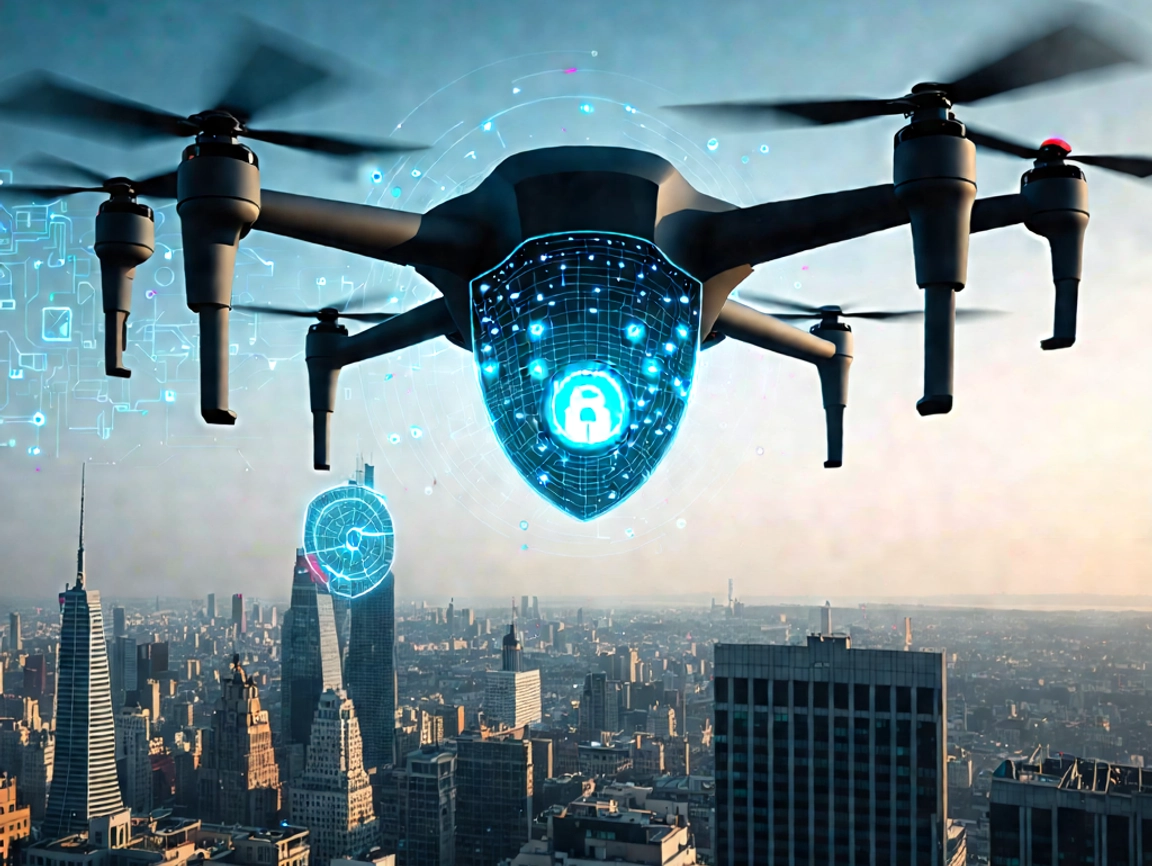Explore how TikTok’s ban signals potential challenges for DJI and the drone industry. Learn about the ripple effects on supply chains, innovation, and regulations, and discover steps drone operators can take to adapt and thrive.
TikTok’s Ban: What It Means for DJI and the Drone Industry
What does the TikTok ban mean for drones? What does it mean for DJI? In recent years, TikTok has faced growing scrutiny from governments around the world, culminating in bans in some countries and restrictions in others. While TikTok’s primary focus is social media, its predicament could have far-reaching implications for other Chinese tech companies. The next company that is important in the drone industry is notably DJI, the undisputed leader in the drone industry. The recent extension by the new administration may also predict the future for the drone industry as a whole.
TikTok and the Geopolitical Spotlight
TikTok’s challenges stem largely from concerns about data privacy and national security. Critics argue that its ownership by ByteDance, a Chinese company, makes user data vulnerable to exploitation by the Chinese government. As a result, TikTok has been banned outright in countries like India and is under intense scrutiny in regions such as the United States and Europe. This is not just about one app; it’s about the trustworthiness of Chinese technology in a geopolitically tense environment.
DJI: A Paralleling Narrative
Like TikTok, DJI dominates its market, but in drones rather than social media. DJI drones are used in industries ranging from agriculture to construction to emergency services. They’re prized for their innovation, affordability, and reliability. Yet, as with TikTok, their Chinese ownership has drawn scrutiny. Concerns have been raised about the potential for sensitive data, such as aerial footage and mapping information, to be accessed by the Chinese government.
While DJI has repeatedly denied such claims and implemented measures like local data storage options to assuage fears, the parallels between TikTok’s situation and DJI’s are hard to ignore. Both companies find themselves in the crosshairs of a broader geopolitical battle over technology and national security.
The Ripple Effect on the Market
If DJI were to face bans or severe restrictions akin to TikTok’s, the impact on the drone market would be profound.
Consider this:
- Supply Chain Disruptions: DJI’s dominance means that many industries have built their workflows and supply chains around its products. A sudden ban could leave these industries scrambling for alternatives, potentially leading to operational delays and increased costs.
- Competitor Opportunities: Non-Chinese drone manufacturers could see a surge in demand. Companies from the United States, Europe, and elsewhere would likely step in to fill the void, but this transition wouldn’t happen overnight. This means a bottleneck for Non-Chinese drone manufacturers who did not previously face this demand.
- Innovation Bottlenecks: DJI’s dominance isn’t just about market share; it’s about innovation. The company has consistently pushed the boundaries of what drones can do. If its ability to operate globally is curtailed, the pace of innovation in the industry could slow.
- Regulatory Uncertainty: A ban on DJI could set a precedent, creating a climate of uncertainty for other tech companies. This could lead to more stringent regulations on all drone operators, regardless of their equipment’s origin.
A Warning for the Drone Industry
TikTok’s struggles should serve as a warning to drone operators, businesses, and policymakers. It’s a clear indication that governments are willing to take action against tech companies they perceive as threats to national security, even at the expense of consumer convenience or market stability.
For DJI, the situation is increasingly precarious. While the company hasn’t faced the same level of bans as TikTok, the trajectory is worrying. As tensions between China and other major economies continue, DJI’s global operations could face significant challenges.
As a drone operator and company owner who is in Sacramento, this means that the transition from DJI to non DJI will be costly and arduous. For other drone operators and hobbyists, it may very well mean the end of their business or a service that helps capture a part of the story. This policy would set us back at least a decade.
What Can Drone Operators Do?
For those in the drone industry, this is a critical moment to assess and adapt. Here are some steps to future-proof your operations:
- Diversify Your Fleet: Avoid over-reliance on any single manufacturer, especially if it’s a company under scrutiny. Look into alternatives from American or European drone manufacturers. Contact us at https://apollodroneservices.com/contact/ for a more in depth discussion that helps keep your operations running.
- Stay Informed: Keep a close eye on regulatory developments and geopolitical news. Understanding the landscape can help you anticipate changes before they happen.
- Prioritize Compliance: Ensure that your operations are fully compliant with all relevant regulations, including data storage and privacy laws. This will put you in a stronger position to weather potential industry shakeups.
- Engage with Industry Groups: Join trade organizations and advocacy groups to stay connected with the broader drone community. These networks can provide valuable resources and support in times of uncertainty.
Conclusion
TikTok’s ban is more than just a story about a social media app; it’s a signal of broader challenges ahead for Chinese tech companies like DJI. For drone operators, this is not a time to panic but to prepare. By staying informed and adaptable, you can navigate these uncertain times and continue to thrive in a rapidly evolving industry. In our times, the TikTok Ban and drones are hand in hand. You cannot watch one without seeing the other.
If you are a drone operator or business and you believe in the fight to keep our market competitive, please visit the Drone Advocacy Alliance at https://droneadvocacyalliance.com/take-action/, and share your story with local legislators.
The warning signs are clear. Will the drone industry take heed?

